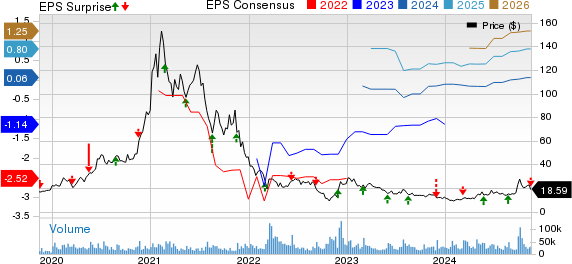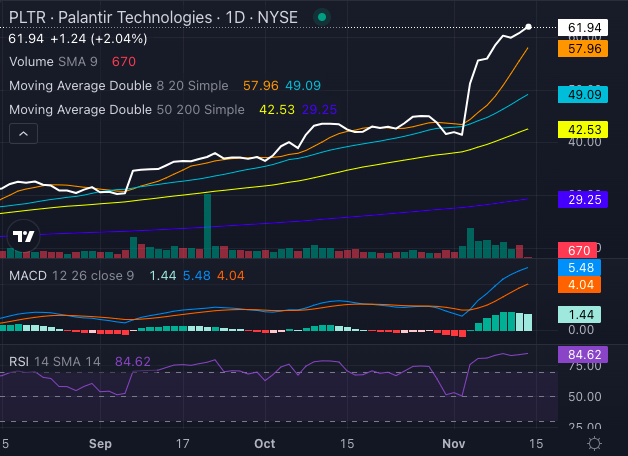Blockchain technology emerges as a disruptive force across multiple industries, with Bitcoin’s recent surge shining a light on its potential to revolutionize supply chain and vendor management. The ripple effect of crypto innovation promises a profound effect on digital transformation.
Fortune Business Insights forecasts substantial growth, projecting the blockchain landscape to soar from $17.57 billion in 2023 to an impressive $469.49 billion by 2030, boasting a staggering compound annual growth rate of 59.9%.
This trajectory is poised to propel blockchains beyond traditional finance applications, reshaping collaboration dynamics among entities.
Harnessing the Power of Blockchain Trust
Blockchain technology introduces a new realm of trust among trading partners, fostering end-to-end visibility and expediting resolutions for supply chain challenges. Moreover, it cultivates stronger relationships within industries.

Enabled by consensus mechanisms, blockchains mandate network verification for any changes, establishing an immutable framework that enhances transparency along the supply chain.
Central to blockchain-based trust are smart contracts, acting as self-executing programs that automate agreement actions. These contracts, with their traceable and irreversible nature, provide a detailed breakdown of terms.
Smart contracts play a vital role in supplier relationship management by ensuring product uniformity, regardless of production location.
President and COO at TraceOne, Sunil Thomas, emphasized how critical data points are directly inscribed on the blockchain, ensuring adherence to specifications, with non-compliant product batches repurposed.
Across various industries, smart contracts serve as quality control tools, particularly in managing client expectations in the food sector and minimizing food waste.
In case of contamination, blockchain records facilitate swift source tracing, curtailing the time taken to dissect the supply chain.
By swiftly identifying subpar products, the blockchain empowers businesses and partners to trace, recall, and prevent economic fallout.
Streamlining Logistics Effort
Efficient supply chains pivot on seamless logistics and inventory management. Blockchain technology contributes to a more
The Future of Business Logistics: Embracing Blockchain Technology
Business logistics is akin to a complex puzzle where every piece needs to fit seamlessly to ensure smooth operations. In the realms of modern commerce, factors like product location, status, and availability play a pivotal role in the success of enterprises.
The Role of Blockchain in Logistics Innovation
Imagine a world where businesses can automate inventory replenishment, trigger orders based on specific conditions, and coordinate strategies effortlessly. This dream is now a reality with the integration of smart contracts into operations.
Blockchain technology, with its ability to operate in tandem with real-time information, enables the utilization of IoT devices for precise decision-making in managing inventory, transportation routes, and delivery schedules. This translates to heightened customer satisfaction levels and minimized risks of product stockouts.

In the aftermath of global disruptions caused by the pandemic and challenges in major trade routes like Suez and Panama Canals, the effective management of logistics has become indispensable for businesses in today’s world.
Blockchain solutions offer the capability for active stock monitoring and self-executing smart contracts that adapt to customer demand changes and delivery forecasts in real-time, reducing the need for human intervention.
Redefining Vendor Evaluation with Blockchain
Blockchain’s benefits extend beyond supply chain management to enable accurate vendor assessments and comprehensive due diligence processes.
By permanently recording essential information on the blockchain, stakeholders gain invaluable insights into vendor histories, relationships, and potential business risks they might pose.
Smart contracts automate due diligence activities, preventing violations like breaches of ESG policies. The transparent nature of blockchain also simplifies monitoring ESG compliance across global supply chains.
Scalability Through Private Blockchains
For businesses eyeing expansion, leveraging private blockchains provides enhanced security and functionality compared to public networks.
Private blockchains mitigate supply chain risks and bolster data transparency, ensuring sensitive information remains secure.
When evaluating scalability, businesses must explore the IT frameworks of various blockchains. Public chains offer solutions such as layer 1 and layer 2 blockchains for high transaction throughput. On the other hand, private chains offer scalability through permissioned participants and simpler consensus mechanisms.
As the blockchain landscape evolves, the integration of smart contracts and scalable solutions will play a crucial role in reshaping the future of business logistics, offering enterprises a competitive edge in an increasingly complex and interconnected world.
The Evolution of Blockchain Technology in Supply Chains
Embracing the Right Chain Network
Choosing the appropriate chain network is akin to selecting the right tool for a specific task. Organizations must consider whether a public or private chain best suits their needs. Utilizing layer 1 and 2 protocols can enhance scaling effectiveness for public chains, while private and permissioned chains cater to bespoke needs and growth prospects determined by network usage.
Leveraging Future Growth Potential
The burgeoning blockchain industry, valued at a staggering $469 billion, is poised to revolutionize supply chains across various sectors, extending well beyond the realm of finance. This expansion presents growth opportunities for forward-thinking organizations harnessing the technology’s capabilities.
Standardizing and automating processes through blockchain empowers businesses to boost compliance, efficiency, and streamline time-intensive operations. Smart contracts, a hallmark of blockchain technology, not only foster trust but also facilitate sustainable ESG commitments and streamline vendor vetting processes effortlessly.
While blockchain’s current impact is prominently felt in the finance sphere, its role is set to transcend industries, becoming an indispensable tool for organizations in diverse verticals. The technology’s evolution promises to redefine operational paradigms and enhance organizational efficiencies in the near future.



